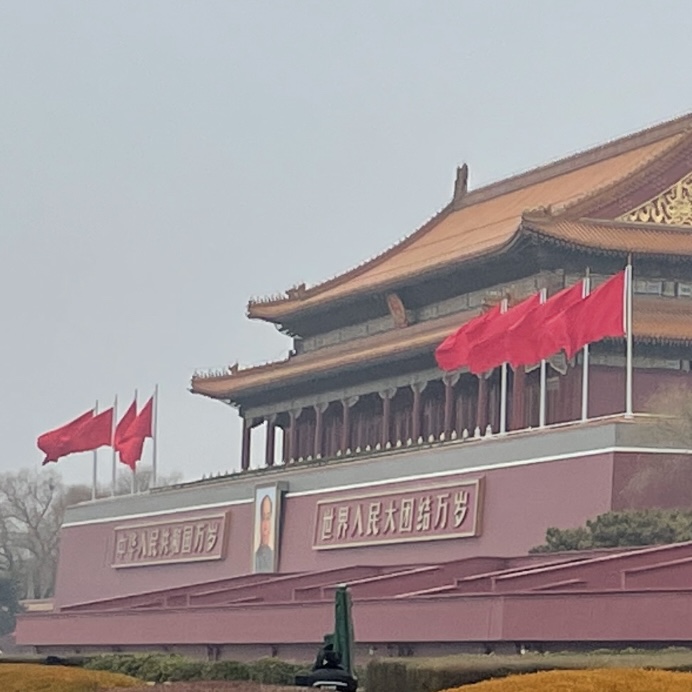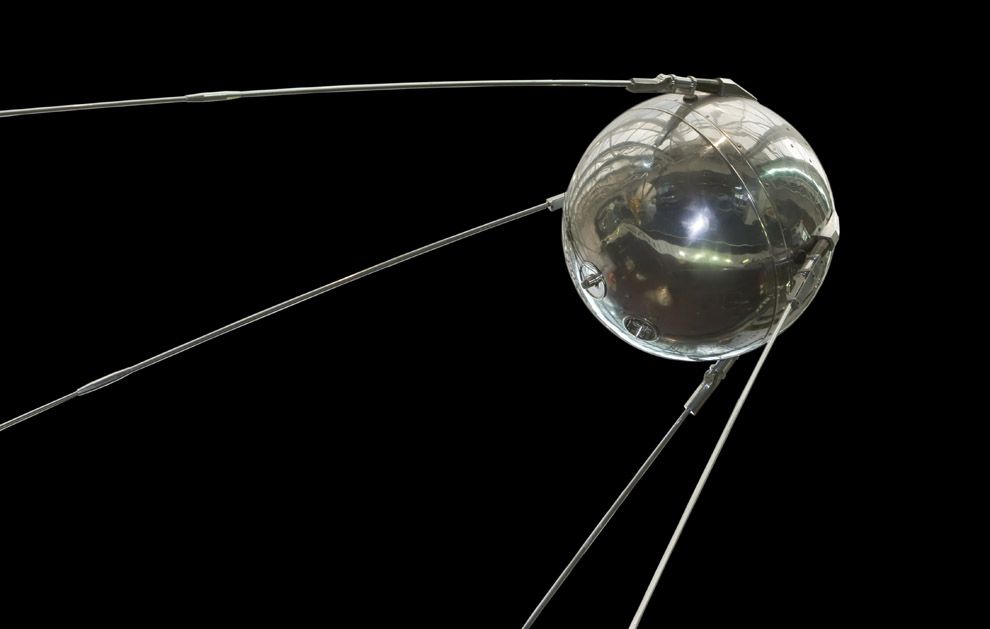When I look at other communist nations, they were invaded, couped, and/or sabotaged at every opportunity, and (forgive me, my history of China is weak) while I’m sure that China faced obstacles from capitalists outside of the country, it somehow rose up to be the power that it is today while the USSR fell, Vietnam and Korea got bombed to hell and back, Cuba was put under crippling sanctions, and surely countless other uprisings got squashed young.
But china didn’t just survive, they thrived. How?
I’ve been wondering about this too. Besides the good answers given here, I suspect / speculate that it also has to do with a national pride after the opium war. Even though China didn’t manage to fully shake off the corruption of the elites then or now, there is a strong desire to make the country better and to invest in education, research, prosperity and healthcare. Because that was how their enemy the British Empire beat them. Like they believe in something other than money.
They also avoided entering an arms race with the US. Maybe they were (seen as) less ideological. They saw themselves as Chinese instead of “Sovjiets”.
Then you also need to be clever with how to deal with foreign propaganda influence. You can’t have a free press if you’re on the US radar.
Maybe the answer is as simple as “they had better / stronger leaders” while USSR was too repressive / purged any opposition.

They seized the means of production. Then they did their best to take from each citizen what was their ability and give to them their needs. Like, it is incredibly hard to get thr basic right like that but it works
As others mentioned part of how the CPC stayed in power was definitely that the Sino Soviet split diverted attention and allowed some reprieve. But that’s definitely not all of it.
Keep in mind China went through the opium wars, rebellions killing tens of millions (Taiping rebellion), Japanese invasion, civil war, then was isolated by the US like other socialist countries until the Sino Soviet split.
Even then the US kept pressure on China, think Taiwan, Hong Kong, Tibet, Xinjiang where and are all places the US stokes tensions and attempted to foment collapse.
Compared to lots of other communist nations, I think the CPC was able to maintain a higher level of credibility and support from its population. Some of that came from maintaining consistent improvements in people’s lives. Notably a 2012 paper noted that:
The pace and scale of China’s economic transformation have no historicalhe pace and scale of China’s economic transformation have no historical precedent. In 1978, China was one of the poorest countries in the world.precedent. In 1978, China was one of the poorest countries in the world. The real per capita GDP in China was only one-fortieth of the U.S. levelThe real per capita GDP in China was only one-fortieth of the U.S. level and one-tenth the Brazilian level. Since then, China’s real per capita GDP hasand one-tenth the Brazilian level. Since then, China’s real per capita GDP has grown at an average rate exceeding 8 percent per year. As a result, China’s real pergrown at an average rate exceeding 8 percent per year. As a result, China’s real per capita GDP is now almost one-fifth the U.S. level and at the same level as Brazil.capita GDP is now almost one-fifth the U.S. level and at the same level as Brazil.
China has obviously since continues growing. Keep in mind, before the reform and opening up China was already growing, it was inconsistent (great leap forward) but it was growing. Many metrics like life expectancy and literacy increased substantially in that period. China’s reduction is poverty is so great it accounts for ¾ of the global reduction since 1982 per a world bank report

I don’t like the graph because if China was on the top, you would see global poverty hasn’t changed much if you exclude China.
Anyways, in comparison to other communist countries, while they all have incredible achievements in their own right, because of the radical improvements in people’s lives the party was bale to maintain very high credibility and standing with the people. As I mentioned, the US tries to cause conflicts in China, but it’s more difficult with such high support. You can see this Harvard study for more details, in short approval of the government is high and increased during the duration of the survey from 2003-2016.
It might not be an exact answer, and it would take a lot of time to explain how China was able to accomplish what it did (which might be more of the answer your looking for) but hopefully this context is helpful.
Thanks for the info, just FYI your quote was garbled
The pace and scale of China’s economic transformation have no historical precedent. In 1978, China was one of the poorest countries in the world. The real per capita GDP in China was only one-fortieth of the U.S. level and one-tenth the Brazilian level. Since then, China’s real per capita GDP has grown at an average rate exceeding 8 percent per year. As a result, China’s real per capita GDP is now almost one-fifth the U.S. level and at the same level as Brazil. This rapid and sustained improvement in average living standard has occurred in a country with more than 20 percent of the world’s population so that China is now the second-largest economy in the world.
China evaded US fuckery because they sided with them during the cold war (when the USSR planned to invade them) so because they were so strategicly important ally it made no sense for the USA to try to change their goverment
Then when Deng took power and opened the country the USA saw a way to kick off its new economic model (neoliberalism) by using cheap chinese labour to get an economic boom and get an edge over the soviets so they were still important even after the fall of the USSR because there was an economic interdepence between both countries
Also USA arrogance played a part too, because they saw that via economic interdependence between US-China would lead to a liberization of Chinese politics and eventually they would accept neoliberalism too (they were into the end of history stuff) so during the 90’s they did thing like using their power to push the WTO to accept China and had the G8+China meeting
But that didnt happen which lead to a problem to the US because by financing China’s economy they help them become one of the great economies of the world but they werent loyal to the US, but its also important to remember that if China became a liberal democracy it would still be a rival of the US because the bigger they economy would get the more they would threaten to take the US hegemonic influence away.
Specially since the US hegemony is only in military matter nowdays (unimultipolar world)
China avoided getting attacked like the USSR because of the USSR. The US was focused on it and China was viewed as a useful tool to split communists and harm the USSR. The sino-soviet split helped China survive at the expense of the USSR.
After the fall of the USSR it was Deng’s reforms that continued to keep China alive. The capitalists thought they would end China in the longterm and they couldn’t resist the vast wealth they could make from investing into this growth market of 1billion+ people. This incentive continues to be the reason China is not simply isolated on trade, there are thousands of capitalists making too much money from China and they do not support going against China as it would hurt their income.
I’m going to start explaining the sino/soviet split using the first scene in Enemy At The Gates
USSR to China when bloodthirsty barbarians (I don’t read IRL lore)

Hunting wolves with Grandpa?
I put the foreign investments in my mouth so they can’t see my developing my industrial base
韬光养晦
Unironically Nixon Goes To China. This was part of a larger normalization of US-Communist relations throughout the world.
Also, throughout the 90s and 00s there was a persistent belief that China was “liberalizing” and they would one day become a Capitalist Democracy like the rest of us. There are shades of End Of History that influenced this thinking, and it wasn’t broken until the mid 10s. Here’s The Economist admitting as much in 2018, and probably the only admission of being wrong by the publication.
Not since Mao Zedong has a Chinese leader wielded so much power so openly. This is not just a big change for China (see article), but also strong evidence that the West’s 25-year bet on China has failed.
After the collapse of the Soviet Union, the West welcomed the next big communist country into the global economic order. Western leaders believed that giving China a stake in institutions such as the World Trade Organisation (WTO) would bind it into the rules-based system set up after the second world war (see Briefing). They hoped that economic integration would encourage China to evolve into a market economy and that, as they grew wealthier, its people would come to yearn for democratic freedoms, rights and the rule of law.
It was a worthy vision, which this newspaper shared, and better than shutting China out. China has grown rich beyond anybody’s imagining. Under the leadership of Hu Jintao, you could still picture the bet paying off. When Mr Xi took power five years ago China was rife with speculation that he would move towards constitutional rule. Today the illusion has been shattered. In reality, Mr Xi has steered politics and economics towards repression, state control and confrontation.
EDIT: I forgot to mention it, but several other significant events precipitated the current China.
- Vietnam and the loss for the US was the nail in the coffin for hard military power against communism in the Western mind.
- the Sino-Soviet split, where the US thought to drive a wedge in international socialism by partnering with China through soft power. This was part of the broader diplomatic normalization between the West and Communism I mention above, where hard military power gave way to soft diplomatic/economic power and influence in the western thought.
 -thought implementing market reforms that the west mistook as moving towards Capitalism.
-thought implementing market reforms that the west mistook as moving towards Capitalism.- The fall of the Soviet Union, that itself birthed the End of History thinking, came with it the beginnings of the thought that China would follow the same path.
All of these factors led to the western ‘certainty’ of China going down the path of Capitalist Democracy.
Years of Cold War propaganda convinced western libs that markets are the antithesis of socialism. So the emergence of markets in China was mistakenly interpreted as meaning the end of socialism in China.
Libs not understanding what socialism is, while frustrating, is such a boon to our efforts worldwide because they cannot effectively combat them without knowing how they work.
:this:
I remember when that article came out, my turbo-lib friend who read The Economist religiously nearly forced me to read it. They got pretty smug about China for a while, but I bet they’re melting down now after this tariff fiasco
Remind them of it now
Jesus, did no one study history? It’s not nukes, not even close.
There’s literally too many things to list. China is massively powerful because of a enormous litany of reasons.
Let’s start with social media. Way before USA realized social media could be a national security issue, China blocked US social media. At the time we complained it was a free speech issue, now we know that social media is being used by western nations as propaganda tools, Arab spring anyone? Good thing China blocked that shit.
Another thing China did was antagonize USA to see what they would cut off. Before Chips, it was the Wolfe act that blocked China from NASA. China took that opportunity and now is the only nation with a space station that isn’t falling out of the sky.
Now we are seeing China implementing Sun Tzu’s win without fighting. Basically if you keep antagonizing your opponent, they’ll eventually waste all their resources to compete with you. Thus, winning without firing a shot.
So yeah, it’s a huge mix of strategies.
You say it’s not nukes yet you start with things that were only possible because of nukes
Whaaa? Blocking social media requires nukes? What’s going on in Iran then?
Antagonizing USA requires nukes? What’s happening in Venezuela?
Waiting out your opponent requires nukes? Well at this point I point to the entire planet waiting out USA’s tariff plan.
Not sure where anything I said doesn’t have an analogous example of a country doing exactly that and they do not have nukes. It’s just no one does all at once which is as I said the real reason China is winning.
Whaaa? Blocking social media requires nukes? What’s going on in Iran then?
Secret nukes.
Antagonizing USA requires nukes? What’s happening in Venezuela?
Secret nukes.
Waiting out your opponent requires nukes? Well at this point I point to the entire planet waiting out USA’s tariff plan.
Whole world’s got nukes. Secret nukes.
Antagonizing USA requires nukes?
Kinda, yeah. If you don’t have nukes, you can’t keep antagonizing the US without the risk of getting invaded and/or nuked. Like MacArthur proposed literally just before China developed nukes.
Being independent and relatively free of harassment by the cia requires nukes. How many coup attempts have there been in venezuela? Why do the US and Israel spend so much effort assassinating Iranian scientists? China can do the things it does because it has the power to. You dont start with blocking social media, blocking social media is a thing you can do when youve laid the groundwork.
anyway i was making a joke and now im actually arguing for it when others in this thread have better answers lol
Well, no. I mean if you look at history, USA has tried all those things in China as well.
https://en.wikipedia.org/wiki/American_espionage_in_China
China is just better at handling it. There’s reasons for this, but that’s a whole separate topic of conversation. Suffice to say, look at what happened in 2010. That’s why China can do it, not the nukes.
Yeah I’m going to say nukes are the starting point
You ever look at the wiki entries “belligerents” section for the cold war post sino-soviet split and you start seeing the Soviet Union on one side and U.S/NATO and the PRC on the other?
-
Get nukes
-
Pretend to be besties with The Great Satan
-
It’s mostly due to the sino soviet split, doing business with China and not attacking them was an orientation that (successfully) undermined the socialist bloc
Since I haven’t seen it mentioned it, what role did reeducation and cultural revolutions play in China to help it resist Western influence? Many other communist revolutions had a disaffected petite bourgeoisie class that resented the new system and worked to undermine it through subterfuge. Did the effects of the Chinese civil war and later reforms have enough staying power to change people’s general ideas of property and government?
Many other communist revolutions had a disaffected petite bourgeoisie class that resented the new system and worked to undermine it through subterfuge.
Something that blew my mind recently is that the 5 stars on the chinese flag represent the CPC (the big star), and then the four “revolutionary classes”: the peasantry, the proletariat, the petite bourgeoisie and the national bourgeoisie. https://en.wikipedia.org/wiki/New_Democracy
ince I haven’t seen it mentioned it, what role did reeducation and cultural revolutions play in China to help it resist Western influence?
I don’t know enough to answer, but one thing is clear: it worked with Xi
the peasantry, the proletariat, the petite bourgeoisie and the national bourgeoisie
Almost inconceivable that this alliance could exist and it would support socialism. Turns out the material conditions in the global south are radically different from those in the imperial core.
deleted by creator
Follow up thought, China was extremely underdeveloped (due to being colonized and war) by the time the communists wrestled their way to power. Because they were able to gradually increase the quality of life and stability of society, they were able to maintain popular support. European communist nations were either already developed (GDR) or not developed very fully (Romania?), so the citizens didn’t give the government credit for improving their material conditions
- Got nukes
- Stuck to the plan
DPRK got nukes and stuck to the plan, but never got big like china. Just a matter of natural resources?
China has a billion people which goes a long way
~ 1.4 billion people vs. ~ 25 million, as well as having a small fraction of total territory would account for a lot
Not to mention, you know, being sanctioned to hell and back and being bombed into the past within living memory.
And possessing control over what was historically the least productive half of the Korean peninsula on account of it being mountainous as all hell while all the good farmland is in the hostile occupied southern half of the country.
Its never “just a matter of” anything. The Sino/Soviet split had deep ramifications across a broad spectrum of conflicts that had a material impact on Chinas reputation with the west.
They partnered with the west in Afghanistan, backing the mujahideen. They backed Cambodia and had growing tensions with Vietnam due to their ties to the Soviets. These actions showed the west they might play ball. Nixon going to China was an effort to drive a deeper wedge between Moscow and Beijing.
After the opening up of China, they convinced Western investors to pour money into their industries. The west thought they would become a liberal democracy any day, just like they think they’re going to collapse any day.
Arguably the Sino/Soviet split was a large factor in the Soviet collapse.
Get the west addicted on your produce of their design
Working on your own produce as a side hustle
It helps to get the Great Satan economically dependent on your exports, exports which supply nearly every part of the US economy and the flow of which would be halted if they attempt any regime change fuckery



























